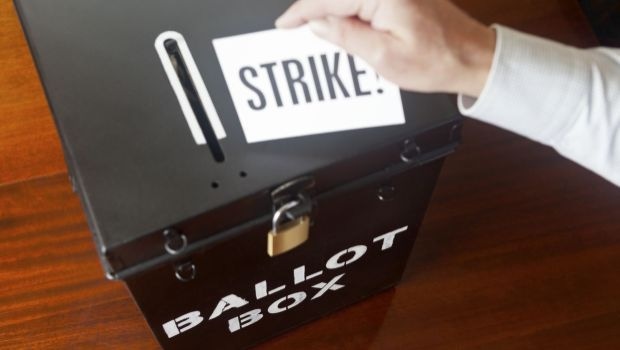F.X. Crowley, a San Francisco-based labor relations and government affairs specialist, has been following the strike and spoke with Channel Partners regarding what likely is taking place behind the scenes.

**Editor’s Note: Click here to view our timeline of events to see how this dispute got this bad.**
 Verizon and union leaders have been negotiating behind closed doors for more than a week while the ongoing wireline workers strike rages on outside.
Verizon and union leaders have been negotiating behind closed doors for more than a week while the ongoing wireline workers strike rages on outside.
The parties decided to start talking again after meeting with U.S. Labor Secretary Tom Perez. They’ve agreed to make no public statements during negotiations.
 In a note to clients on Monday, telco analyst Barry Sine of Drexel, Hamilton & Co. reported – after talking with sources at the carrier and with the unions – that he anticipates “the strike to end relatively soon.” Best guess: sometime next month.
In a note to clients on Monday, telco analyst Barry Sine of Drexel, Hamilton & Co. reported – after talking with sources at the carrier and with the unions – that he anticipates “the strike to end relatively soon.” Best guess: sometime next month.
F.X. Crowley, a San Francisco-based labor relations and government affairs specialist, has been following the strike and spoke with Channel Partners regarding what likely is taking place behind the scenes.
“Most contracts, if made over time, are substantial,” he said. “Meaning collective bargaining agreements (CBAs) tend to be detailed regarding wages, benefits and working conditions. Most have categories requiring certain pay structures for the various units employed.”
Conflict typically arises with health-benefit contributions, pay or working conditions, Crowley said.{ad}
“A federal mediator can play a vital role,” he said. “They cannot force either party at the table to stipulate to any item. Federal mediators are shuttle diplomats, meaning they move between two different rooms where the parties exist, and try to put options and variations of solutions for both parties to accept or reject.”
An impasse occurs when one or both sides refuse to make any further concessions, Crowley said.
“If negotiations fail, the employer typically imposes a last, final and best offer,” he said. “If the employees accept, a vote is taken to accept or reject. If rejected, a strike vote ensues.”
In that case, the Labor Department could call for a cooling-off period in which both parties go back to bargaining after 30 days or so, Crowley said.
Nearly 40,000 members of the Communications Workers of America (CWA) and the International Brotherhood of Electrical Workers (IBEW) from Massachusetts to Virginia have been on strike since April 13. Union leaders rejected Verizon’s “last, best final offer,” in which the telco upped its wage increase offer from 6.5 percent to 7.5 percent over the term of the contract.
Lowell McAdam, Verizon’s chairman and CEO, recently indicated the ongoing strike might impact …
{vpipagebreak}
… the telco’s second-quarter results. He spoke at the 44th Annual J.P. Morgan Global Technology, Media and Telecom Conference in Boston.
“We have pushed off installations,” he said. “We’re doing a lot of installations, but we’re not doing the same volume that we have before. So we won’t be driving similar numbers in the second quarter that we would in first from an installation perspective. So the overall impact depends on how we come out of the contract because we will get some concessions, and then how long it goes.”
In the meantime, Chris Shelton, CWA president, issued a statement regarding his union taking a leading role in the fight to “take on Wall Street.”
“Today, 39,000 working men and women remain on strike at Verizon precisely because of Wall Street’s excesses,” he said. “In every round of negotiations, we go head-to-head not only with that company’s management but with Wall Street’s definition of success that drives corporate behavior. Corporations like Verizon look to move jobs overseas and to low-wage contractors, slash health care, trash retirement security and make ever more demands for concessions, all to satisfy Wall Street.”
Read more about:
AgentsAbout the Author(s)
You May Also Like


